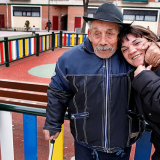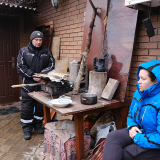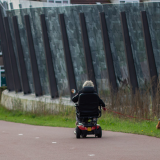
Condiciones de vida y calidad de vida
Las condiciones de vida y la calidad de vida son uno de los seis ámbitos de actividad principales del programa de trabajo de Eurofound para el período 2021-2024. Eurofound seguirá cartografiando y analizando aspectos clave relacionados con la mejora de las condiciones de vida de la población en Europa, en particular recopilando informaciones sobre su percepción de la calidad de vida y la sociedad. Habida cuenta que la pandemia de la COVID-19 y la consiguiente crisis económica han afectado profundamente a la vida de las personas, Eurofound seguirá investigando el impacto de esta crisis en la ciudadanía de la UE en diferentes etapas de la vida.
Durante el período 2021-2024, la investigación de Eurofound proporcionará información importante sobre los retos y las perspectivas en el ámbito de las condiciones de vida y la calidad de vida en la UE, así como sobre el papel desempeñado por diversas iniciativas orientadas a aliviar las dificultades sociales de diversos colectivos ciudadanos. Revisten especial interés las repercusiones para las personas mayores y las necesidades asistenciales, los jóvenes y su inclusión y movilidad social, y las diversas consecuencias de la crisis en hombres y mujeres .
Los servicios públicos de toda la UE desempeñaron un papel importante en la gestión de la crisis de la COVID-19 al tiempo que afrontaron retos considerables, y serán evaluados en mayor detalle, centrándose en cuestiones como la calidad, el acceso y la asequibilidad. Como se ha demostrado en anteriores conclusiones, la crisis ha tenido efectos desproporcionados sobre determinados colectivos dependiendo de la edad, las responsabilidades asistenciales y la conciliación de la vida laboral y familiar , y Eurofound los analizará en mayor profundidad.
En coordinación con el Instituto Europeo de la Igualdad de Género (EIGE), Eurofound pretende investigar la brecha de género multidimensional analizando el impacto de la crisis de la COVID-19 en hombres y mujeres en términos de participación en el empleo y condiciones materiales de vida y bienestar, con el fin de identificar las diferencias y evaluar su efecto en las brechas de género.
- Infografía: Condiciones de vida y calidad de vida en la UE






















